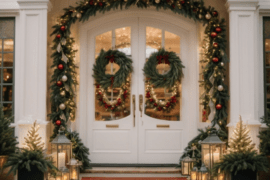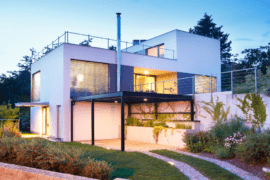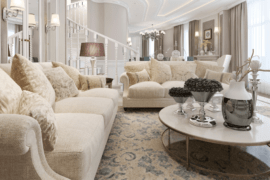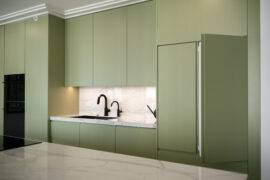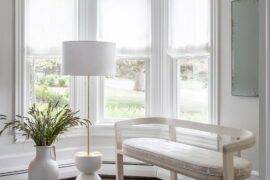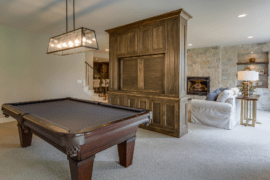Welcome to the intersection of history and modernity, where the timeless elegance of Colonial-style houses meets the demands of contemporary living. Modernizing a Colonial-style house poses a unique challenge – how do you seamlessly integrate modern amenities without compromising the inherent charm of this architectural gem?
If you were wondering about that question, well, you are in luck as we will be embarking on a journey to strike the perfect balance, offering insights into thoughtful upgrades and landscaping strategies that preserve the character of your Colonial abode.
Navigating the Modernization Dilemma
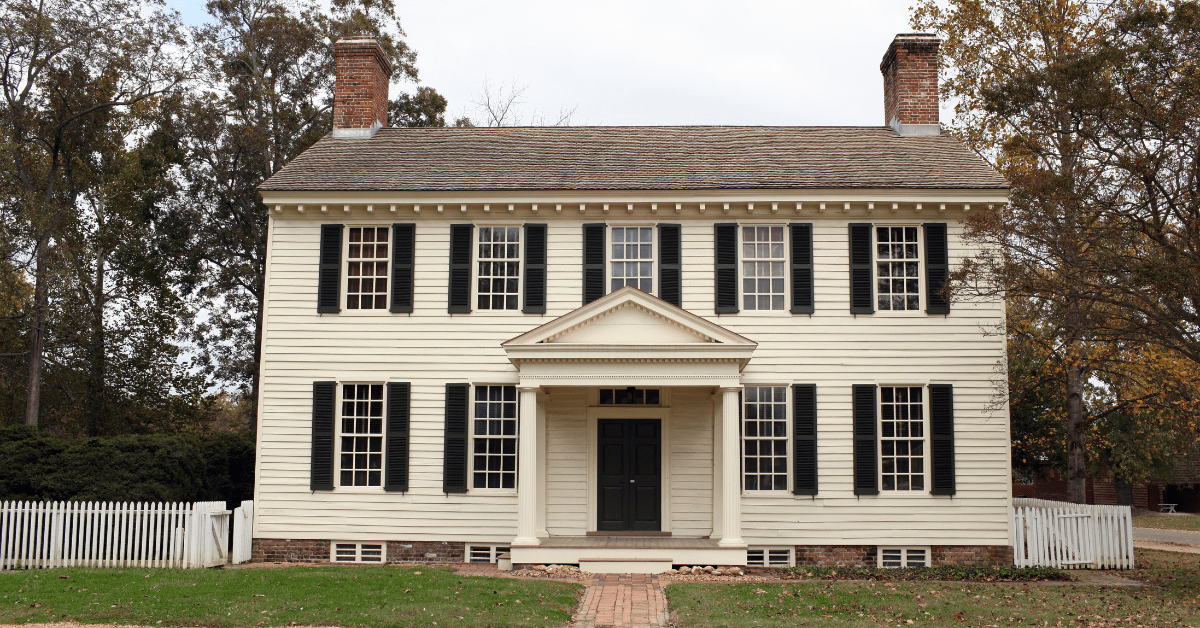
In the intricate dance between tradition and innovation, the decision to modernize a Colonial-style house is not just about updating aesthetics; it’s a conscious choice to preserve the very essence that makes these homes timeless. Here’s why maintaining Colonial charm during the modernization process is not just a nod to history but a strategic and rewarding decision:
- Historical Significance: Colonial-style houses are living artifacts that bear witness to a rich history that shaped architectural trends. Retaining their original charm pays homage to the craftsmanship and cultural heritage of a bygone era, contributing to the preservation of architectural history.
- Architectural Identity: Each Colonial home tells a unique story through its distinctive features – the symmetrical facades, central chimneys, and classic columns. By preserving these elements, homeowners not only maintain the architectural identity of their property but also contribute to the cohesive aesthetics of historic neighborhoods.
- Enduring Aesthetic Appeal: The timeless elegance of the Colonial style has endured for centuries, attracting admirers with its grace and symmetry. When modernizing while retaining this charm, homeowners ensure seamless integration of classic aesthetics with contemporary living, creating a space that transcends fleeting design trends.
- Property Value Enhancement: Colonial homes, when thoughtfully modernized while preserving their charm, often stand out in the real estate market. The combination of historical significance and modern conveniences can enhance the property’s value, making it an appealing investment for discerning buyers.
- Cohesive Neighborhood Aesthetics: In neighborhoods with a historical character, maintaining Colonial charm contributes to the overall harmony of the community. Striking a balance between modern updates and traditional aesthetics ensures that the home remains an integral part of the neighborhood’s visual narrative.
- Personal Connection: For homeowners, modernizing a Colonial-style house while retaining its charm is a deeply personal journey. It allows them to forge a connection with the past, infusing the space with a sense of continuity and creating a home that resonates with their personal history.
- Environmental Sustainability: The durability and quality craftsmanship inherent in Colonial homes often align with sustainable practices. By preserving and restoring original features, homeowners contribute to the longevity of materials, reducing the need for frequent replacements and minimizing environmental impact.
In essence, the decision to maintain Colonial charm during modernization goes beyond aesthetics; it is a commitment to heritage, identity, and a celebration of enduring beauty.
Thoughtful Interior Upgrades
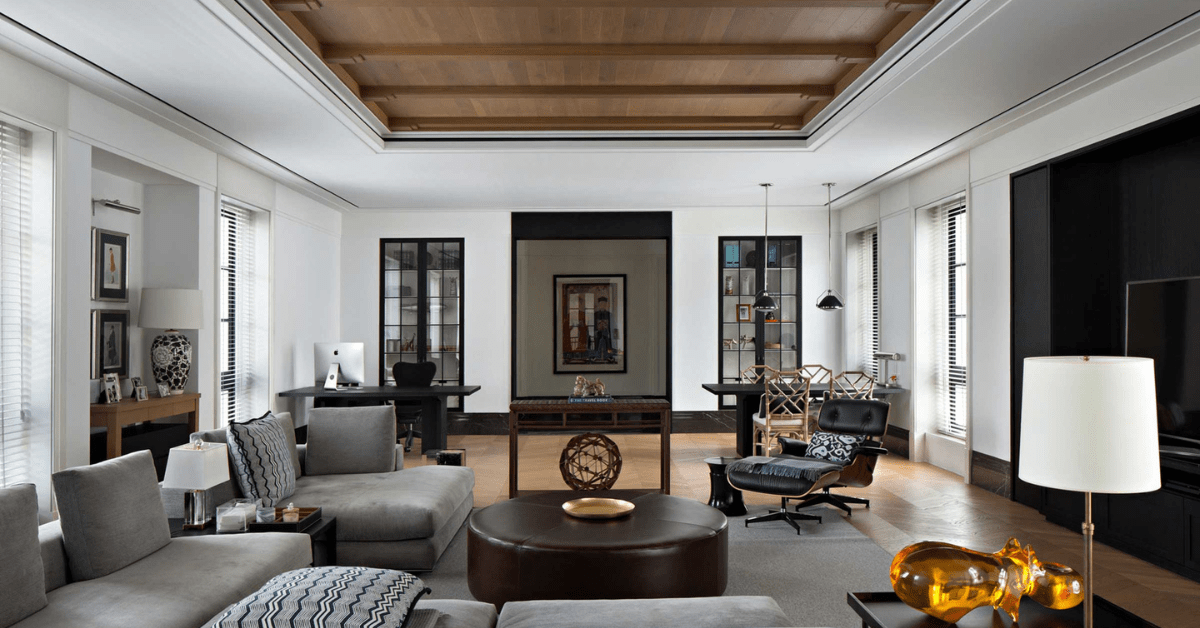
Modernizing the interior of a Colonial-style house is a delicate art that requires a discerning eye for preserving historical charm while integrating contemporary elements. Here’s a practical guide to interior upgrades that seamlessly blend tradition with modern living:
- Preserve Original Architectural Features: Identify and preserve distinctive architectural features such as crown moldings, wainscoting, and intricate woodwork. These details contribute to the Colonial charm and should be maintained or restored.
- Choose Neutral Color Palettes: Opt for neutral color palettes inspired by historical hues. Soft whites, muted grays, and warm beige tones create a backdrop that complements the timeless appeal of Colonial interiors.
- Blend Antique and Modern Furniture: Create a harmonious fusion by blending antique or reproduction furniture with modern pieces. Consider reupholstering vintage furniture with contemporary fabrics to breathe new life into classic pieces.
- Incorporate Period-Appropriate Lighting: Choose lighting fixtures that evoke the Colonial era. Chandeliers with candle-style bulbs, brass or wrought-iron finishes, and sconces can enhance the historical ambiance while providing functional illumination.
- Update Fireplace Surrounds: If your Colonial home features a fireplace, consider updating the surround while preserving the original mantle. Tasteful tile or stone options can provide a refreshed look without compromising the historic charm.
- Refinish Hardwood Floors: Hardwood floors are a hallmark of Colonial homes. Refinish or restore the original hardwood, maintaining its warm and inviting character. If necessary, choose area rugs that complement the historical aesthetic.
- Concealed Storage Solutions: Embrace modern storage solutions while maintaining a clutter-free appearance. Concealed cabinets and built-in storage can seamlessly integrate with the architecture, providing functionality without sacrificing style.
- Smart Home Integration: Integrate smart home technologies discreetly. Concealed outlets, smart thermostats, and hidden wiring for entertainment systems allow for modern amenities without disrupting the classic look of Colonial interiors.
- Textured Fabrics and Patterns: Introduce textured fabrics and patterns inspired by the Colonial era. Damask, toile, and floral prints can add visual interest, creating a layered and inviting atmosphere.
- Artwork and Decor: Choose artwork and decor that complements the historical narrative. Antique mirrors, traditional landscapes, and portraits can enhance the Colonial ambiance, creating a cohesive and curated look.
Fundamentally, the thoughtful approach to interior upgrades in a Colonial-style house transcends mere aesthetics; it is a meticulous curation of historical charm, seamlessly interwoven with modern elements for a living space that honors tradition while embracing contemporary living.
Preserving Original Features
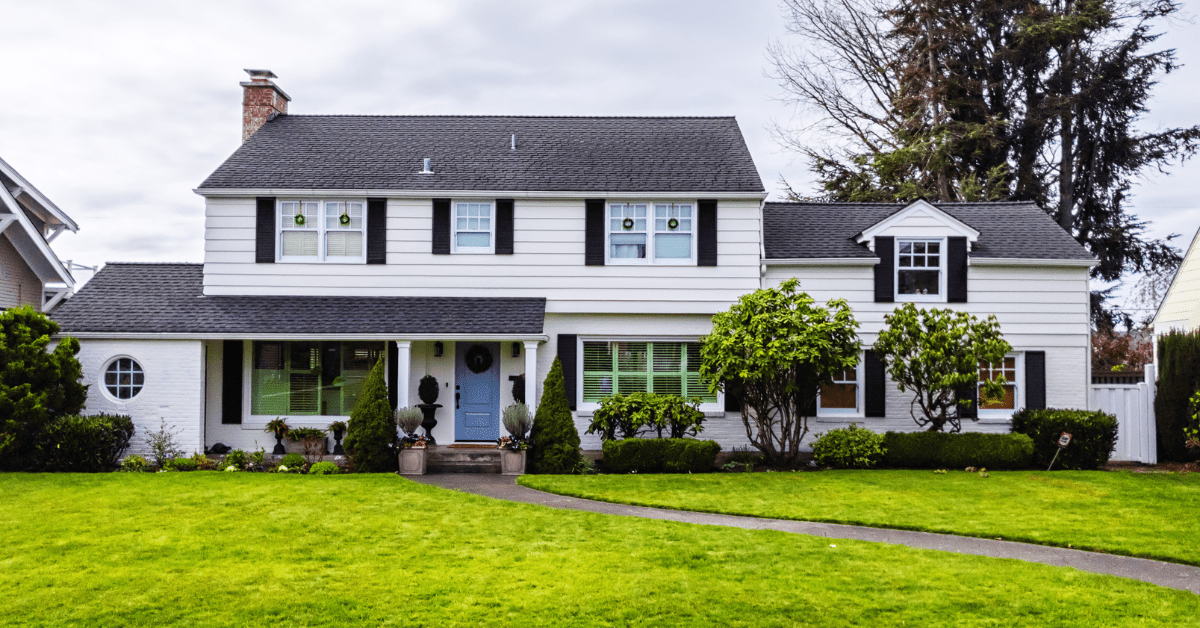
Preserving the original features when modernizing your Colonial-style house is a crucial step in maintaining its historical integrity. Here are practical strategies to guide you in honoring and safeguarding the timeless elements that define your home:
- Historical Research: Begin your preservation journey with thorough historical research. Understand the architectural details and styles that are characteristic of your home’s era. This knowledge will guide decisions on what features to retain.
- Period-Appropriate Materials: When repairs or replacements are necessary, prioritize period-appropriate materials. Whether it’s restoring clapboard siding, wooden shutters, or crown molding, using materials authentic to the era ensures a faithful restoration.
- Woodwork Restoration: Focus on the restoration of intricate woodwork, such as moldings, banisters, and mantels. Professional craftsmen can carefully restore these features to their original glory, preserving the craftsmanship of the past.
- Original Windows and Shutters: Whenever possible, retain original windows and shutters. Repair or restore them to ensure functionality while maintaining the charm of the home. Consider adding storm windows for energy efficiency without compromising authenticity.
- Fireplace Mantels: Preserve and restore fireplace mantels, as they are often focal points in Colonial homes. Repair any damage and maintain or replicate intricate carvings to retain their unique character.
- Hardwood Floors: Refinish original hardwood floors rather than replacing them. This not only preserves the authenticity of the flooring but also contributes to the overall warmth and character of Colonial interiors.
- Staircases and Balustrades: Preserve the original staircases and balustrades. Repair any loose or damaged components and refinish or repaint them to match the historical color palette.
- Exterior Clapboard Siding: Maintain the classic exterior clapboard siding. Regular inspections, repairs, and repainting with historically accurate colors ensure the longevity of this iconic feature.
- Original Doors: Retain and restore original doors whenever possible. Repair any damage, replace hardware with period-appropriate options, and consider adding weather stripping for improved energy efficiency.
- Historical Documentation: Document the historical features you preserve. Keep a record of your home’s architectural evolution, including photographs and any relevant historical documentation. This documentation becomes part of the home’s story.
Preserving original features not only safeguards the historical value of your Colonial-style house but also enhances its aesthetic appeal.
Harmonizing Modern and Period-Style Furnishings
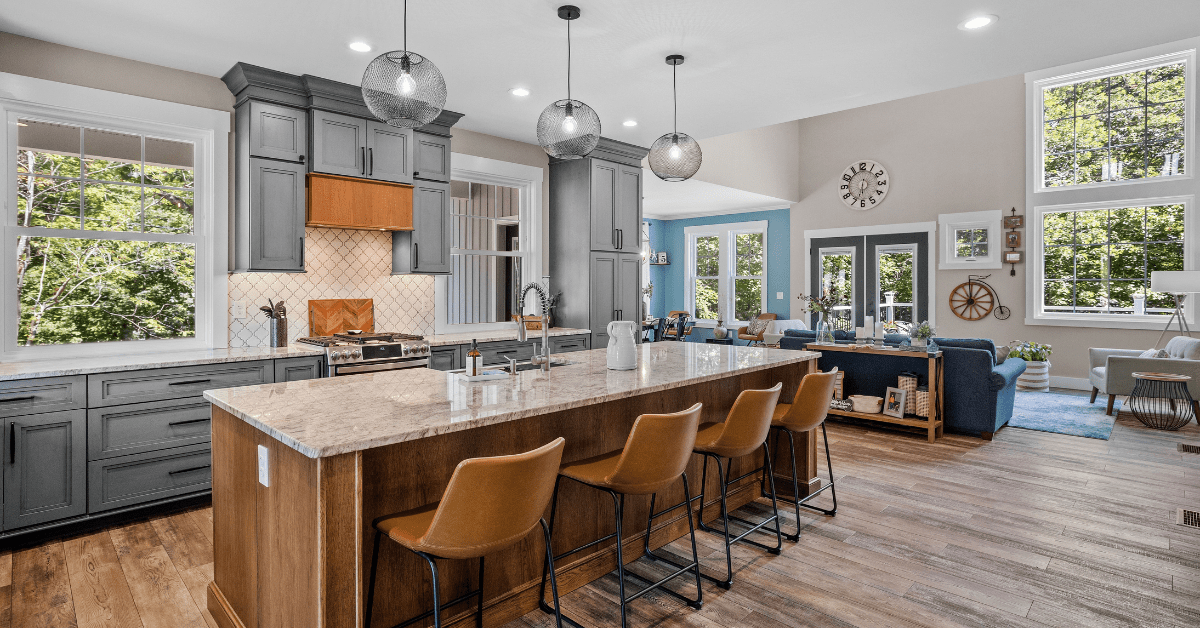
Achieving a harmonious blend of modern and period-style furnishings is a key aspect of modernizing a Colonial-style house. This delicate balance ensures that your home feels both current and connected to its historical roots. Here’s a guide to seamlessly integrating these elements:
- Define Your Style Fusion: Clarify your design vision by defining the balance between modern and period-style elements. Decide whether you prefer a more traditional or eclectic approach, allowing you to curate a cohesive aesthetic.
- Anchor with Timeless Pieces: Invest in timeless furniture pieces that resonate with Colonial charm. Classic styles such as Queen Anne, Chippendale, or Sheraton can anchor your design and serve as focal points in each room.
- Mix Materials Mindfully: Integrate a mix of materials for a balanced look. Combine antique wooden furniture with contemporary materials like glass, metal, or acrylic to create a visually interesting and well-rounded space.
- Reupholster Vintage Furniture: Breathe new life into vintage or antique furniture by reupholstering with modern fabrics. This allows you to retain the original structure while infusing a fresh, contemporary vibe.
- Layer Textures for Depth: Layering textures add depth to your interiors. Combine smooth, sleek surfaces with textured fabrics, patterned rugs, and plush cushions to create a dynamic and inviting atmosphere.
- Bold Artwork and Decor: Infuse bold, modern artwork and decor to inject personality into your Colonial home. Large, contemporary pieces can coexist harmoniously with traditional furnishings, creating an intriguing juxtaposition.
- Select Thoughtful Accents: Choose accents that bridge the gap between eras. Decorative accessories such as mirrors, lamps, and vases can tie the room together, seamlessly merging the old and the new.
- Blend Time Periods: Don’t be afraid to blend different time periods. Incorporate mid-century modern or industrial-inspired elements if they complement the overall aesthetic, adding a layer of eclecticism to your Colonial home.
- Customize Modern Built-Ins: Integrate modern built-ins that seamlessly blend with the architecture. Customized shelving, cabinets, or entertainment units can provide contemporary functionality without disrupting the historical flow.
- Neutral Color Palette: Maintain a neutral color palette as a unifying element. Neutral tones serve as a canvas for both modern and period-style furnishings, allowing each piece to shine in its unique way.
By thoughtfully curating a collection of modern and period-style furnishings, you can modernize your Colonial-style house to fit your needs while maintaining its timeless charm.
